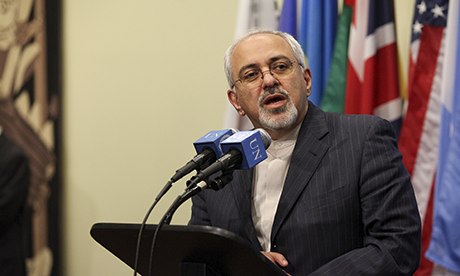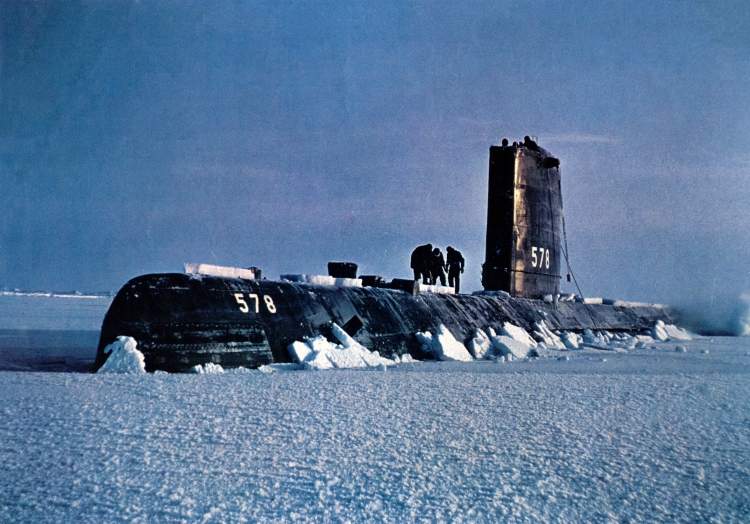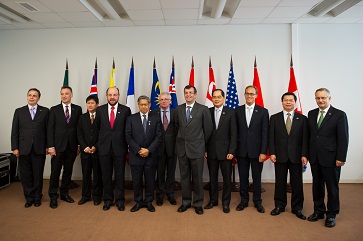Ian Litschko: In Canadian media, coverage of events in Ukraine has become less frequent since the ceasefire came into effect and IS has taken up more space. Can you describe the situation in eastern Ukraine today?
Dr. Lada Roslycky: The situation in eastern Ukraine is horrific. Ukraine is in a state of war and the Russian Federation is no longer hiding the fact that it is sending its troops into Ukraine. We are seeing them enter Ukraine regularly now. Thousands are killed, maimed and taken hostage.
 In addition, the Russian media is portraying democracy in Ukraine as fascism. Everything that has to do with democracy is being called fascism with right wing forces that want to destroy other languages and cultures in the country. Ironically, this is what the Russians and their supporters are doing in eastern Ukraine and Crimea.
In addition, the Russian media is portraying democracy in Ukraine as fascism. Everything that has to do with democracy is being called fascism with right wing forces that want to destroy other languages and cultures in the country. Ironically, this is what the Russians and their supporters are doing in eastern Ukraine and Crimea.
Crimea seems to have been forgotten by the international community. The situation there is far from good. Russian-backed forces have gone into Tatar and Ukrainian schools and centres, taken out “disapproved” educational materials and even shut them down. The Ukrainian language has been removed from the curriculum. Russian-backed “peacekeepers” in the area are reportedly also receiving a lot of heavy weapons.
Leading up to the illegal annexation of Crimea, Russia had been issuing passports to Crimean residents for a number of years. However, the people who acquired – and those forced to take Russian passports – this year have a special problem. Their Russian passports are invalid; falsely identifying them as being citizens of different parts of the Russian Federation. Travel between Ukraine and Crimea is possible, but security is very tight in this area. People may experience difficulty getting in or out, especially if they have been outspoken about recent events.
Internal migration is also causing havoc in Ukraine. There are over 450,000 registered displaced people and that is the official number; not all have been registered. The volunteer groups are doing what they can to help take care of these people. The government is struggling to provide proper supplies to its soldiers, let alone its displaced persons, and the volunteers are stepping in to fill in this gap.
IL: What prospects do you see for the future in Eastern Ukraine and the nation as a whole? Do the separatist regions have a place in Ukraine in the future?
LR: At this point when a war is going on, it is difficult to say what role these terrorist organizations and Russia are going to play in Ukraine. If Putin succeeds with his Novorossiya and the land-bridge projects, it will likely lead to a frozen conflict leaving the areas dangerous; similar to what we see in Transdniestria, South Ossetia, Abkhazia and Nagorno-Kharabakh. A frozen conflict will lead to a rise in transnational organized crime, which we can already see happening. For example, there have been reports of significant amounts of illicit drugs and arms being shipped into Ukraine across the Russian border into Ukraine. This is a relatively new development. Before the conflict, this was more or less controlled.
We are also seeing so-called Russian “humanitarian convoys”. The OSCE and the International Committee of the Red Cross have not been checking what is coming in or leaving in those trucks. It is heartbreaking when you know those trucks are filled with material support for the terrorists, and that they are robbing Ukraine of its industrial materials, particularly coal. Moreover, the convoys are also transporting the 200 loads, which is a Soviet code for bodies. This is further demonstrating Russian presence in Ukraine.
I believe that the situation will get worse. The longer formal institutions allow it to happen, the worse it will become, especially for the EU.
If we consider the pending Mistral handover, it is very worrisome to see the apparent passivity of the EU and NATO states. Their security is at stake! That one Mistral will change the military and geopolitical balance in the Black Sea and the Mediterranean Sea Regions drastically. One has to wonder what France’s foreign security policy is if it does indeed deliver to the Russian Federation. The Mistral is one hard power aspect – there are many.
Another aspect pertains to soft power security. Russia Today (RT) is the known propaganda machine of the Kremlin. Recently, Putin announced RT would open up an office in the UK to provide citizens “an alternative view” of their domestic policy. It is a very shaky situation, which may lead to even more instability in Europe and possibly the US, Middle East and Canada.
Markedly the EU has remained relatively silent on the issue of the right wing fascist groups operating as “observers” in the eastern regions of Ukraine. I question the legality of their activities. These groups entered an international conflict zone without Ukraine’s permission, blatantly distort facts and support international terrorist organizations. How will their actions be addressed by their own states?
That is one question. The main question is, however: what do the power keepers in the West have to gain by letting Putin get away with this? We see this huge division in Russia between rich and poor, just like in Ukraine. I’m afraid if Russia continues with its foreign policies, we may very well see the societal divide grow and in the end, democracy together with the nation-state international system will lose out to oligarchic feudalism.
Implementation of the Minsk Protocol (September 5, 2014)
IL: What steps have been taken by the Ukrainian government to implement Article 3 of the Minsk Protocol? What is the state of affairs today?
LR: There has been a lot of talk, but little action. Article 3 was supposed to create a buffer zone of sorts. The cease fire was, unfortunately, a paper one. The Russian-backed terrorists never stopped violating Ukraine’s territorial sovereignty. At long last, the Ukrainian President Petro Poroshenko said the government has pulled back from giving special status to the disputed territories. Ironically, now the Russian Federation and the Russian-backed terrorists are stepping away from the protocols, asserting there was no ceasefire on Ukraine’s side, and that they will not allow Kyiv to determine their borders; they will do those themselves!
Today we hear Putin saying he is not even interested in the Geneva Process, so we see a full turnaround in the dialogue. We now hear the Russian-backed terrorists saying they are going to dictate the policies, because Ukraine and the West are not addressing the issues appropriately. It isn’t surprising, but it is disappointing with so many thousands of lives being lost and destroyed.
Going back to the previous question, as long as the West maintains its current policy and Russian-backed terrorists receive firepower and money from Russia, they will succeed. Particularly, if Ukrainian politicians, who are supposed to be leading the country and protecting it, are going to be more concerned with their portfolios and making money than running the country.
Currently, the volunteers in Ukraine need all the support they can get. They are doing so much when the government isn’t able to. Regular people of all ages are going to the conflict zone to feed, clothe, and provide basic medical aid to the men and women fighting for their country and its dignity. It is truly amazing to observe, but at the same time, quite difficult. I know a young lady who risks her life regularly doing this. At one point she was even pulling bodies out of the zone to ensure they get a proper burial at home. A young lady should not have to be doing that, but thank goodness she, and many others, are.
IL: What about the decentralization of power? The adoption of federal law concerning “local government provisional arrangements” in the self-proclaimed governments of the DPR and LPR?
LR: All of this is basically out the window for eastern Ukraine. We don’t know about the rest of the country because the new government is not yet sitting. A lot can still happen. We should see the first parliament meeting take place December 1, 2014.
IL: What about the provision in the Minsk Protocols for inclusive national dialogue?
LR: Civilians are doing a lot of talking and connecting amongst the two sides. Some civic initiatives are reaching out to the international community and initiating open dialogue. Two organizations worth mentioning in this regard are EuroMaidan SOS and The Ukrainian Freedom Fund. Once the government has had time to get situated following the elections, we may see more from them. However, it is important to note that daily briefings on the situation in the conflict zone do take place.
Notably, when it comes to talking to the “separatists”, both sides are seemingly still on board. However, when you look at things from an international legal perspective, it becomes difficult to watch. De jure, these are Russian-sponsored terrorists selected to tear territory away from Ukraine, rather difficult negotiating partners. When we consider the role former President Kuchma plays as a negotiator in the situation, it becomes disheartening. Although many Ukrainians believe he was the best president Ukraine has had, his murky past damages his credibility and the hope of the Ukrainian people.
Speaking of former Ukrainian presidents, I believe this situation couldn’t exist without Victor Yanukovich. Under his rule, the people weren’t being taken care of, quite to the contrary. Disturbingly, many people with power around here are still connected to the corrupt schemes, which siphoned billions of dollars out of Ukraine.
From the societal perspective, there has been a policy of fomenting distrust between Ukrainians in the east, west, and Crimea for quite some time. There are many examples, but here is a simple one: The former Ministry of Education approved a book to kindergarten and grade 1 classes in Eastern Ukraine. It portrayed western Ukrainians as lazy drunks who couldn’t take care of themselves and the people of Donbas as very hard working folk who support the entire country. This is indicative of a long-term soft-power security tactic aimed at pitting Ukrainians against one another. A proper government would do the opposite and foster the trust and the common “we identity”.
Tomorrow, Dr. Roslycky will discuss the recent elections, available here.




